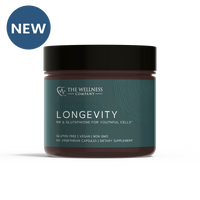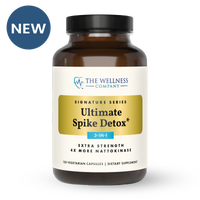Five Superfoods to Supercharge Your Immune System

The term "superfood" is tossed around ad nauseum in contemporary health discussions. And while the word might sound more like a marketing buzzword than a meaningful definition, most experts and health enthusiasts alike could agree that most foods granted superfood status share some common characteristics. Most of them are real, unprocessed, and nutritionally dense, providing a rich array of vitamins, minerals, and antioxidants that can significantly bolster our health.
Whether or not you share our allergy to the term, in today’s article, we’ll be diving deeper into the science behind five remarkable so-called “superfoods” which have a positive effect on our immune systems. Whether you’re a bit bored with your recipe routine and looking for some inspiration to shake things up, or you’re motivated to keep your family healthy as flu and cold season approaches, we’ve got you covered.
- Berries: Nature's Antioxidant Jewels
Blueberries, strawberries, raspberries, and blackberries are more than just delicious fruits. They're packed with vitamins, especially Vitamin C, and a class of antioxidants called anthocyanins. These antioxidants combat free radicals—unstable molecules that can damage our cells and weaken the immune system. By neutralizing these free radicals, the antioxidants in berries help maintain the integrity of our immune cells, ensuring they function optimally to fend off pathogens.
- Spinach and Kale: The Green Immune Enhancers
Spinach and kale are leafy greens that offer more than just vibrant color. They are both rich in Vitamin K, C, antioxidants, and beta carotene. Beta carotene is a precursor to Vitamin A, a vital nutrient for immune function. It enhances the pathogen-fighting actions of our white blood cells and helps maintain the health of our skin and mucous membranes—the body's first line of defense against infections.
- Almonds: The Nutty Immune Booster
Almonds are not just tasty, satiating snacks; they're immune-boosting powerhouses, containing a high concentration of Vitamin E. While Vitamin C often gets the limelight in discussions around immunity, Vitamin E is equally crucial for immune support. It acts as an antioxidant, protecting our cells from damage. In addition to Vitamin E, almonds also contain healthy fats, which aid in the absorption of Vitamin E, ensuring our immune cells remain robust and ready to defend.
- Turmeric: The Golden Immune Enhancer
Turmeric, a staple in many Asian cuisines, contains curcumin, a compound with potent anti-inflammatory properties. Inflammation is a natural immune response, but chronic inflammation can weaken our defenses. Curcumin helps modulate this response, ensuring it's balanced and doesn't go overboard and backfire. Moreover, studies have shown that curcumin can enhance the production and activity of specific immune cells, making them more efficient in warding off infections. Whether you grate some into a curry, or steep some into your tea, turmeric is a great way to charge up your immune defenses.
- Ginger: The Zesty Immune Fortifier
Ginger is more than a flavorful spice. It boasts both potent anti-inflammatory and antioxidative properties. These dual actions mean ginger not only helps reduce inflammation but also combats oxidative stress, ensuring our immune systems remain in tip-top shape. For centuries, ginger has been used in traditional medicine to aid digestion and combat nausea, but its benefits to the immune system are equally noteworthy.
Bottomline
As flu and cold season hits, incorporating these superfoods into your daily diet is one way to give yourself the best shot of staying healthy. While each alone offers potent nutritional benefits, it's essential to remember that they're most effective when consumed as part of a balanced diet of whole, unprocessed foods. So, explore these foods, savor their flavors, and fortify your immune system naturally!
References
Wu, X., et al. (2006). Concentrations of anthocyanins in common foods in the United States and estimation of normal consumption. Journal of Agricultural and Food Chemistry. ↩
Carr, A. C., & Maggini, S. (2017). Vitamin C and immune function. Nutrients. ↩
Lee, G. Y., & Han, S. N. (2018). The role of vitamin E in immunity. Nutrients. ↩
Jagetia, G. C., & Aggarwal, B. B. (2007). "Spicing up" of the immune system by curcumin. Journal of Clinical Immunology. ↩
Mashhadi, N. S., et al. (2013). Anti-oxidative and anti-inflammatory effects of ginger in health and physical activity: Review of current evidence. International Journal of Preventive Medicine. ↩














